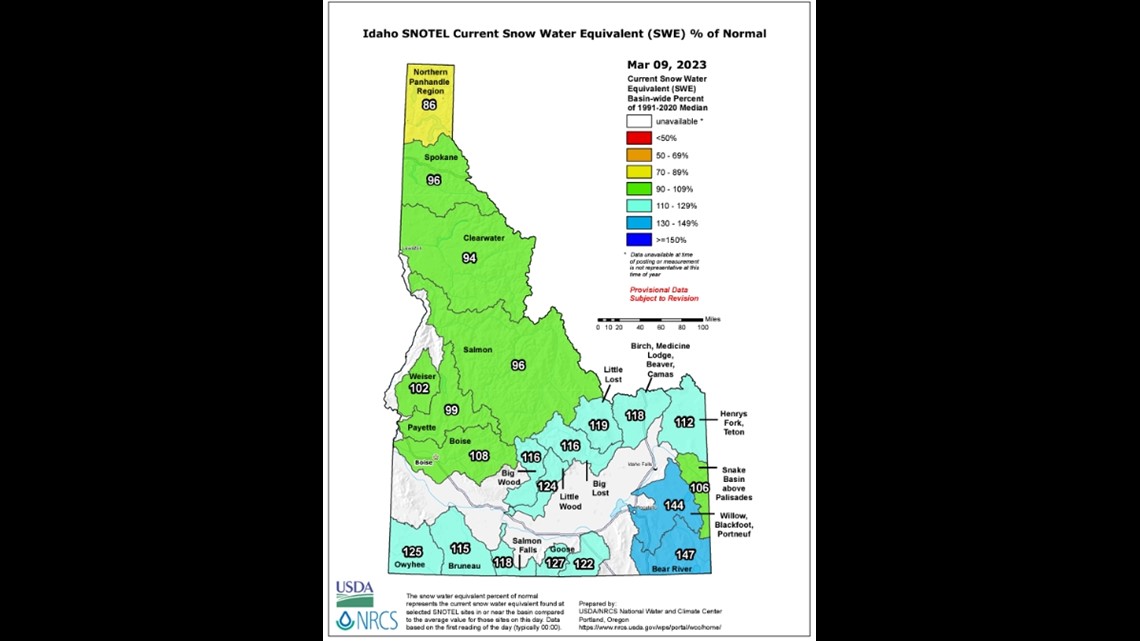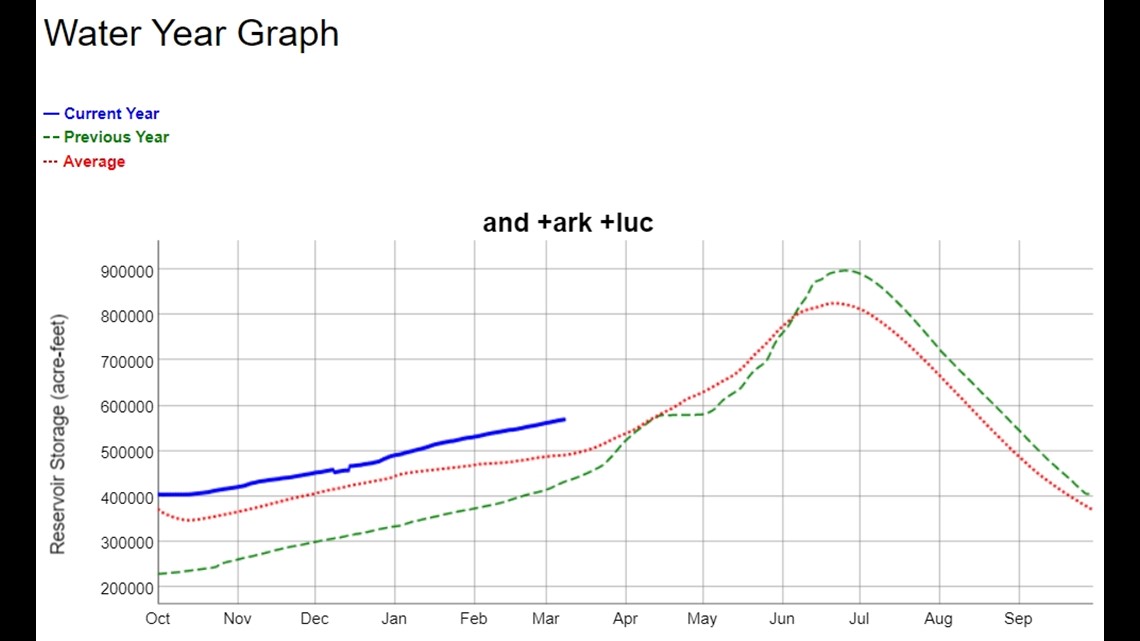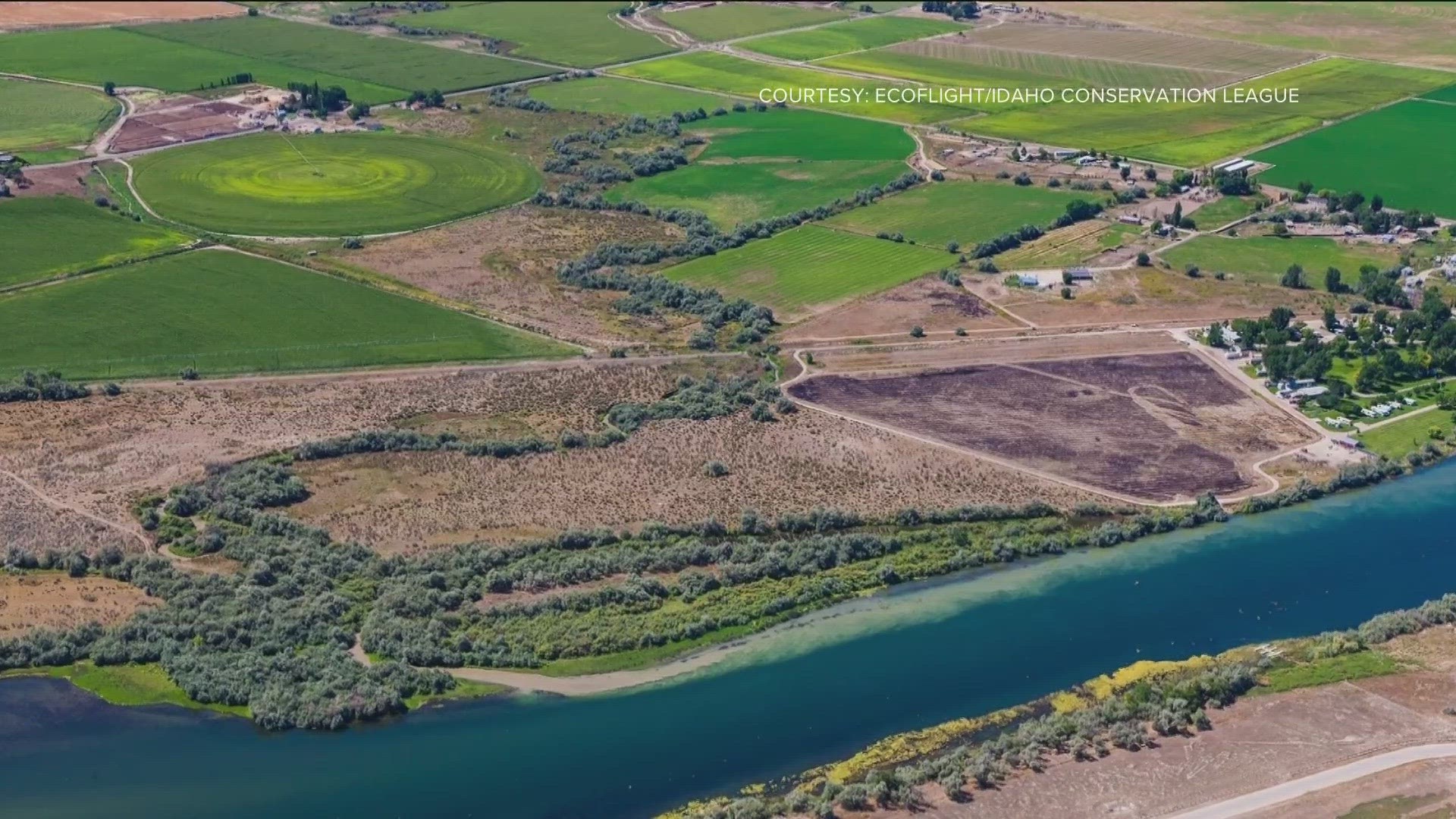BOISE, Idaho — With all the busy winter weather, snow is on the top of many peoples' minds in southern Idaho. On Wednesday, officials met to discuss the Gem State's water supply.
During the meeting, officials said Idaho's snowpack ranges from normal to above normal. This is good news for the irrigation season in the Treasure Valley.


Ryan Hedrick is the Water Operations Lead and Dive Team Leader for the Bureau of Reclamation. In the meeting, Hedrick said the Boise River Reservoir System is at 60% of capacity.
Hedrick added the Bureau expects to be able to fill the Boise and Payette River systems, and there may be some flood operations in late March and early April.


While things are looking good for water above the surface, there are some concerns about water that lies below the surface. Groundwater is water that is underground in the soil or in pores and crevices in rock.
Josh Johnson is a Senior Conservation Associate for the Idaho Conservation League, and is also a geologist. Johnson said the Eastern Snake River Plain Aquifer is being depleted and quality is being degraded.
"In southern Idaho, groundwater really is the lifeblood of the region, along with the Snake River," Johnson said. "So, this groundwater is absolutely crucial to supporting all manner of things, including agriculture, public water supplies, and even the fish farms that dot the Snake River. They are all relying on that clean, cold water from the Eastern Snake River Plain Aquifer."
Johnson added there's a long-term trend of the aquifer being depleted and becoming lower, due to the demands on it. He said in recent years, the state had a big push to recharge the aquifer levels.
"One of the great things about the Eastern Snake Plain Aquifer is its geology. It's made up of porous basalt, which has a lot of space to hold the water and it's also very easy to infiltrate into," Johnson said. "So, you know, they don't have to do much to recharge the aquifer, basically, you just have to divert water and canals to the right places where it just will naturally sink in."
However, the past few years have been very dry, so the state hasn't been able to allocate water for recharge. There's also an issue with contamination of the groundwater in the aquifer.
"A lot of people, especially those with private wells, will be drinking directly from the Eastern Snake Plain Aquifer for their drinking water, for the most part, and historically, this water has been clean enough to drink," Johnson said. "Now, there are certain places in the Eastern Snake Plain Aquifer where that water is contaminated primarily by something called nitrate, which is due to excess nitrogen being in the water. That can result in adverse health effects if it's in high enough concentrations in people's water."
The Idaho Conservation League conducts a report evaluating the groundwater quality in the Magic Valley. In their report, the ICL said nitrate in drinking water can cause a "myriad of human health problems".
"Nitrate typically comes from two primary sources; one are fertilizers, and the other is animal manure. So, nitrate is present in both, or nitrogen is present in both," Johnson said. "If there's too much nitrogen put on the land, either, you know, on a farm field or just where manure is put or something like that, the crops can't uptake all that nitrogen. So, the remaining nitrogen tends to leach into the soils and then into the water."
Johnson suggests that if people get their water from a private well, they should get it tested for nitrates. If you get your water from a public water source, like a city or municipality, you should ask about how clean your water is.
"I would just emphasize that groundwater in southern Idaho really is one of our most important resources, and we shouldn't take it for granted, both in terms of having enough of it or for having it be clean enough to drink, to feed our fish farms, to irrigate with," Johnson said. "So, I think it is National Groundwater Awareness Week, and we should all be thinking about how we can protect our groundwater resources going forward."
Watch more Local News:
See the latest news from around the Treasure Valley and the Gem State in our YouTube playlist:

